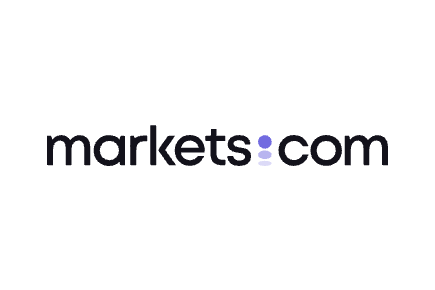Is XM better than Markets.com? We have compared these brokers side by side, and while both brokers have a lot to offer, some traders will find that one or the other works better for them. XM offers a low minimum deposit and is regulated by CySEC, which is one of the strictest regulatory bodies. Markets.com has a strong international presence, with regulatory oversight in several different countries – this offers various advantages, such as higher leverage for traders in certain regions.

Risk Warning: CFDs are complex instruments and come with a high risk of losing money rapidly due to leverage. 74.89% of retail investor accounts lose money when trading CFDs with this provider. You should consider whether you understand how CFDs work and whether you can afford to take the high risk of losing your money.



CFDs are complex instruments and come with a high risk of losing money rapidly due to leverage. 80.4% of retail investor accounts lose money when trading CFDs with this provider. You should consider whether you understand how CFDs work and whether you can afford to take the high risk of losing your money.


Comparing broker fees is challenging. This is because they all have a range of fees that may or may not apply to individual trader, sdepending on a number of factors. For example, Markets.com does offer very low fees and tight spreads, but not to all customers. Fees are tied to the platform you use, and the lowest trading costs seem to be only available to those using the firm’s own proprietary platform, MarketsX. MT4 and MT5 trading is available at Markets.com, and many traders will choose these platforms because they are familiar with them, only to find that they are subject to higher fees and spreads than they would be on MarketsX.
At XM, fees do not necessarily vary according to the platform, but they do according to the account type, so you will have to take a close look at the terms and conditions for the type of account you need. Clients who hold the XM Zero account can benefit from spreads as low as 0.0 pips on USD/EUR trades, but you will also pay a small commission with this account. Other accounts will have higher spreads but no commission. Your trading costs will also depend on the instruments you trade, how active you are, your trading techniques, and other factors.
When deciding whether to trade with Markets.com or XM, keep in mind that the laws and regulations of the region you live in will dictate the leverage that a broker offers you. Both of these brokers generally offer leverage of up to 30:1 to UK and EU clients, as governed by European regulators. Markets.com, however, has an international presence in several countries, including the British Virgin Islands. Trading with the offshore arm of any brokerage comes with pros and cons, and is generally not advisable for beginner traders. However, this does mean that you may be able to access higher leverage with Markets.com as an international client – potentially as high as 300:1.
Opening an account with either Markets.com or XM is relatively straightforward. As with most brokers, registration is entirely online and the initial signing-up process can be completed in minutes. Before signing up at XM, you will need to work out which account type you need. With Markets.com, there is only one account type, but you will need to decide in advance if you are going to use the proprietary platform or MT4/MT5.
Both Markets.com and XM offer a demo account so that you can try out the platform or practice new trading strategies. The XM demo account comes with $100,000 of virtual funds. At Markets.com, you can open a MarketsX demo account. This is a positive as you would otherwise have no way of assessing the proprietary platform to see if it is worth the extra benefits that the firm offers when trading with it. The demo account is fully mobile-compatible. You will need to complete registration first before accessing the free demo account.
Markets.com’s own proprietary platform is generally well respected and comes with a range of trading tools, but it is advisable to try the demo account first to see if it will work for you. If you prefer MT4 or MT5, they are also available, but the trading conditions are not as favourable as on the firm’s own platform.
XM also offers MT4 and MT5 trading, as well as copy trading via XM Mirror Trader. This will make XM a better choice if you are into copy trading, as Markets.com does not have an in-built copy trading facility.
XM has a very low minimum deposit, of just $5, on all retail accounts. With Markets.com, the minimum deposit requirement is $100 (or £/€100). While the $5 deposit is generally seen as a positive, making the broker very accessible, it is obviously only an advantage if you are actually planning to deposit less than $100, which will not be the case for most traders.
XM provides trading in more than 1,000 different instruments, including 55 forex pairs, along with CFDs, stocks, commodities, energies, precious metals and indices. Markets.com offers access to 8,000 instruments, including 65 currency pairs, 60 ETFs, 28 commodities and 38 indices, along with shares and bonds.
So, which broker is best for you, Markets.com or XM? The answer depends on you and your needs. Those with a very low sum to invest can benefit from the low deposit requirement at XM, but international traders who want to access higher leverage may prefer Markets.com. If you sign up with Markets.com and use the MarketsX platform, then you will find that your trading costs are pretty low. However, do take advantage of the demo account to see if you like the platform.